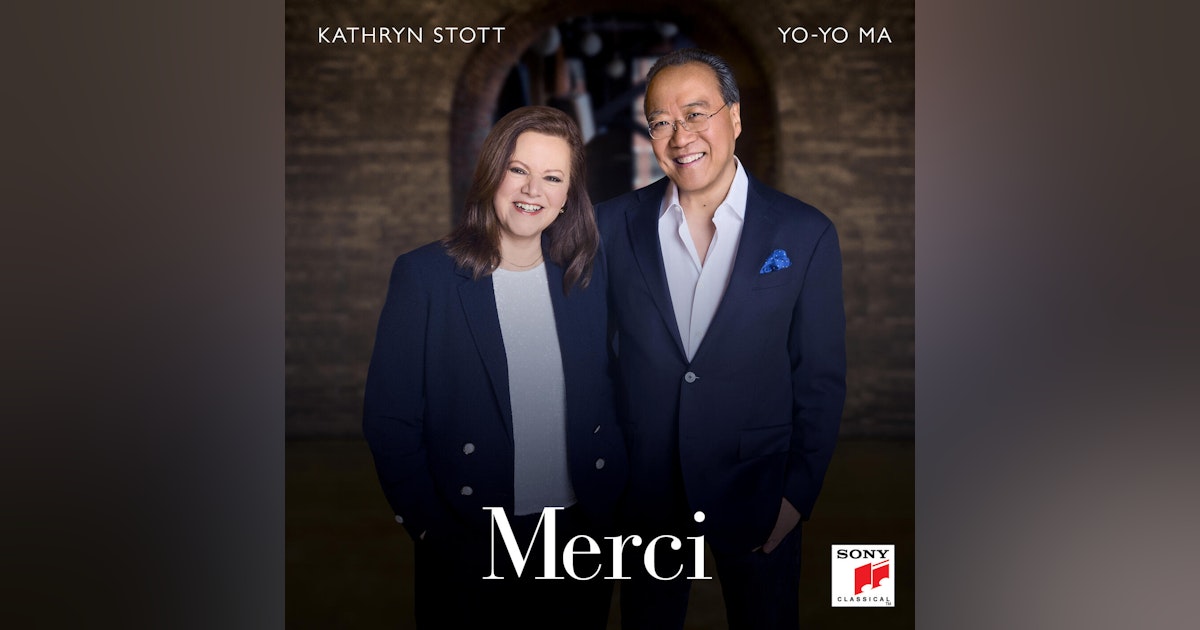Merci: Yo-Yo Ma and Kathryn Stott's masterclass in friendship
A wonderful celebration of a.magnificent musical partnership

This is a decades-long alliance the has resulted in.plethora of marvels. They have played together for some 40 years; and the disc was issued prior to Stott's retirement from the concert platform.
Here's a seven-minute introductory video:
The disc begins with Fauré, probably the finest account of the Op. 16 Berceuse you are likely to hear. The sound is exceptional, too:
I find this more convincing than Steven Isserlis and Stephen Hough, for example:
In fact, the disc orbits around Fauré, including music by his pupil Nadia Boulnger (and her sister Lili Boulnger), his teacher Camille Saint-Saêns, and his friend the great Pauline Viardot.
It is Lili Boulnger who furnishes the next piece, a Nocturne of the most fascinating chromaticism: identifiably French but also identifiably not of the Debussy/Ravel axis. This is a composer with her own clear voice:
It certainly meshes well with the Fauré Andante, Op. 75 (1787), Ma finding real passion here.
One of the most cruelly under-rated operas is Saint-Saëns' Samson et Dalilla. The most famous number is “Ma coeur s'ouvre à ta voix,” heard here with the cello on the vocal line, obviously. The melody is glorious:
... and here's Elina Garanca in the original:
It is Nadia Boulanger's Cantique that offers balm, ender nd pagan (and just listen to Ma's glorious final ascent:
Much so far has been lyrical: Fauré's Op. 77 Papillon (Butterfly), though, certainly flits hither and thither.
Pauline Viardot is an important composer who has appeared several times before on Classical Explorer. Her Hai Luli! (... how sad it is without my lover) is simply lovely piece, and Ma's cello again sings, vocally:
It is not unreasonable to suggest the prestty much everyone knows Fauré's Sicilienne. It is taken relativey swiftly here, but is none the worse for it. I wonder if it was a conscious decision regarding placement, as Lili Boulanger's D'un soir triste is certainly darkly beautiful, and the two work magnificently as a pair:
Fauré's Morceau de lecture is a delight, and very little known; it segues into another La Mer, this one by Nadia Boulanger, a song of exquisite, held-breath whispers:
Fauré meets Viardot next, the former's glorious Romance, Op. 69 set against Viardot's Aimez-moi. Viardot's works really need to be better known. This one is from Six Chansons du XVIe Siècle and is full of inanition. That individual language is once more present:
Nice to have a sprightly piece next, Fauré's Sérénade, Op. 98, Stott of brilliant form, her articulation so crisp, her projection of melodies perfectly judged:
Two Romances to finish, Saint-Saëns (Op. 36) and Fauré (Op. 28). The former is one also known to horn players; Ma and Stott take it faster than I imagined it (nd as I took it in my playing days!), but it works, especially as the tempo meshes with that of the Fauré:
A wonderful celebration of a.magnificent musical partnership. The disc is available at Amazon here.


